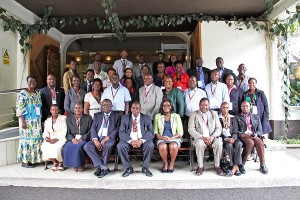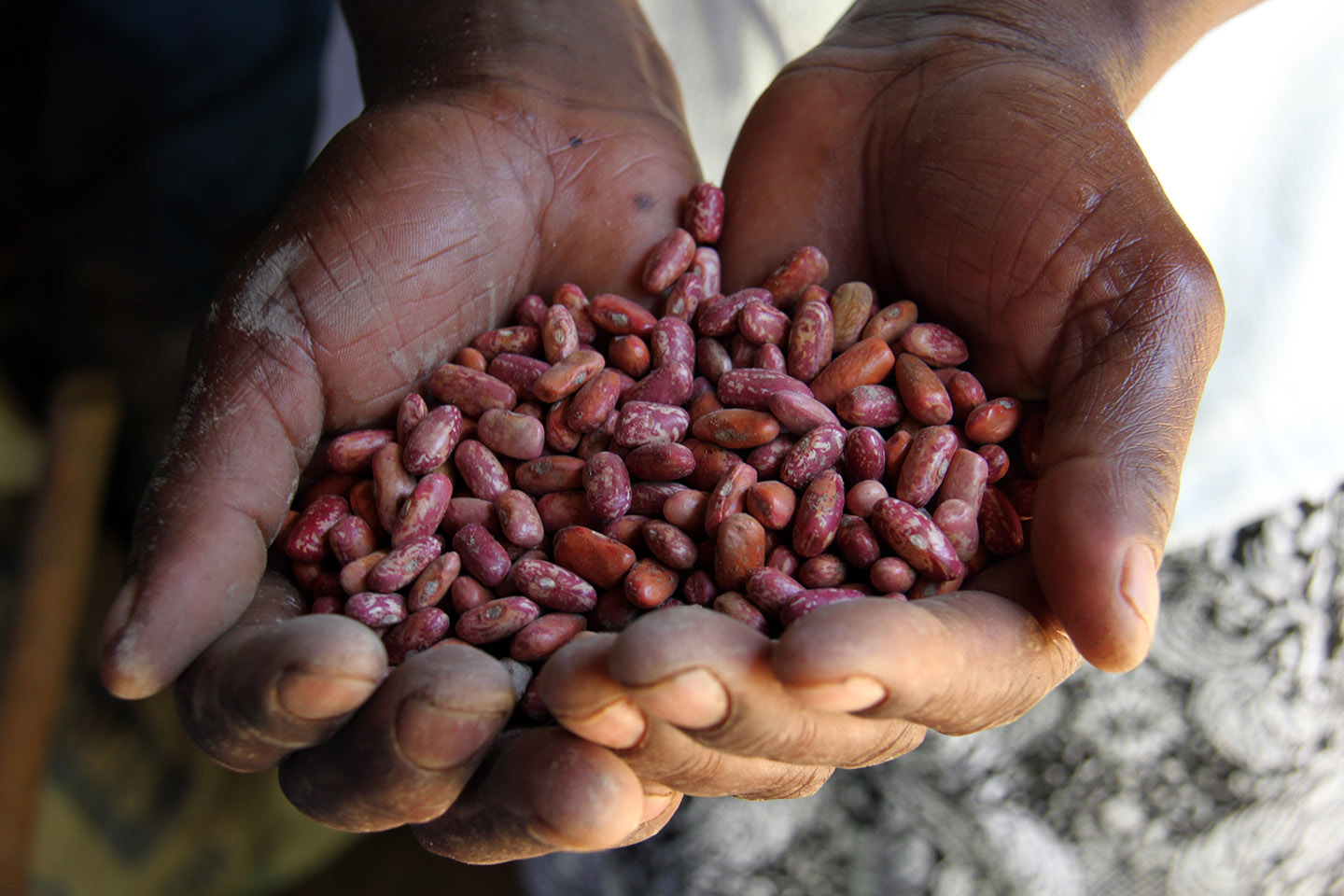The project – ‘Enhancing food and nutrition security and income generation through post-harvest value addition: A case of precooked beans’ – is a US$2.5 million project supported under the Cultivate Africa’s Future Fund (CultiAF) set up by Canada’s International Development Research Centre (IDRC) and the Australian Centre for International Agricultural Research (ACIAR).
A new public-private partnership in Uganda and Kenya will develop affordable, tasty and long lasting precooked bean products. Photo: N. Palmer (CIAT).
Beans are great. They are nutritious, they are cheap and they boost the incomes of smallholder farmers. But, for the vast majority of the estimated 200 million Africans that eat them, I doubt that convenient is a word they would associate with this protein staple.
Dried grains, the most available and affordable bean product, take as many as three hours to cook, which takes a lot of energy, be it wood, electricity or paraffin, and therefore a lot of labour, expense and time for women to prepare. Cooking beans in bulk is out of the question as most families don’t own refrigerators, and, canned beans are a convenience food of the wealthy.
As Eliud Birachi, market specialist from the International Center for Tropical Agriculture (CIAT), says: “If we want to increase the consumption of beans in order to boost nutrition levels and provide markets for smallholder farmers, we must have the consumer in mind.”
So, the question is, how can we put the convenience in to cooking beans?
Ordinarily it’s a question that would be answered by the private sector – where there is demand, there is profit to be made, right? Indeed, many entrepreneurial individuals have picked up on this market opportunity and are raising their incomes by cooking beans in bulk and selling them to their neighbours. But, despite bean sales in East Africa now exceeding US$500 million annually, with an export value of about US$110 million, many private sector businesses still see beans as a subsistence crop.
In Kenya and Uganda things are about to change.
This week (25 to 28 November) a group of researchers, farmers, traders and manufacturers met to launch a new project that is set to answer this very question. Over the next two and a half years this public-private partnership will develop affordable, tasty and long lasting precooked bean products.
Led by research partners National Agricultural Research Organisation in Uganda (NARO), Kenya Agricultural and Livestock Research Organisation (KALRO), and CIAT under the Pan-Africa Bean Research Alliance (PABRA), and in collaboration with the private sector, the project aims to:
- Increase the production and supply of beans suitable for precooked processing, which will give farmers access to new, sustainable markets and enable them to increase their incomes.
- Develop precooked bean products from varieties including those high in micronutrients, and promote their consumption.
- Reduce the environmental and fuel costs associated with cooking beans by creating a product that will reduce the cooking time from as much as three hours down to ten minutes.
- Create employment opportunities and stimulate market-led production by partnering with private sector businesses.
Speaking at the project launch in Nairobi on 25 November, Dr. Eliud Kireger, Director General of KALRO, said: “There is little value addition processing of beans in the eastern Africa region beyond the usual cleaning, packaging and bulk loading. The nutritional value, convenience of preparation and cost will make precooked beans a smart choice for peri-urban and urban populations. There is no doubt that the marketing and distribution of these products will create a new spectrum in the whole value chain.”

A group of researchers, farmers, traders and manufacturers met to launch a new PABRA project entitled ‘Enhancing food and nutrition security and income generation through post-harvest value addition: A case of precooked beans.’
Dr. James Ogwang, Director of National Crops Resource Research Institute (NaCRRI), representing NARO Uganda, noted that emphasising value addition would “improve quality, increase incomes and create jobs for the most vulnerable in society who are mostly women, youths and children.”
Dr. Jemimah Njuki, Senior Program Officer IDRC and Liz Ogutu, Regional Manager Africa ACIAR, noted that the support provided under CultiAF is aimed at building research capacity and increase opportunity for scientists in the region through agricultural science and innovation, in particular on bridging the gap between science, technology and innovation, which is key to enhancing Africa’s capacity to sustainably feed itself.
Project partners include Lasting Solutions Ltd, Community Enterprises Development Organisation (CEDO), Smart Logistics Solutions and many others.

